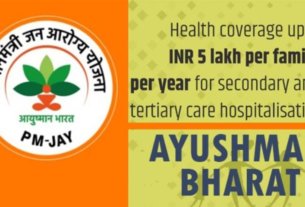Last Updated on 28/06/2020 by Deepak Singla
Healthcare costs have been rising at twice the rate of general inflation in the country. With 15%-20% inflation in healthcare, a medical cover seems like the need of the hour. However, most people tend to overlook the many benefits of having health insurance plans and instead opt to invest in one due to the tax perks it comes with.
Under Section 80D of the Income Tax Act of 1961, you can claim a deduction up to Rs.25,000 per annum for medical insurance premium installments. The premium paid can be for you, your spouse, or your children. The deduction limit increases to Rs.30,000 if the premium paid is for your parents who are senior citizens. With an appropriate cover for the family, you can save up to Rs.55,000 in tax deductions. Though the amount might look colossal, it shrivels in size when compared to the savings you can avail against medical expenses through an insurance policy.
Read More: top 10 health insurance companies in India
Benefits of buying a medical cover:
Tax deductions through health policies are a side bonus but these benefits are not the only reason to consider buying a medical cover. Here are other advantages of a health insurance you should know about.
Free health checkups: Your healthcare plan offers free health checkups if this is within the predetermined limit stated in the plan. If you have had 4-5 consecutive claim-free years, you can avail this benefit. Another advantage of this feature is that the health checkups are completely cashless.
- No Claim Bonus (NCB): If you don’t file a claim in the year-long tenure of the policy, you become eligible for the NCB. The bonus can either mean a rise in the sum insured (up to 50%) or a discount on the annual renewal amount. A cumulative bonus may also be offered by insurers for every no-claim year.
- Alternative treatment options: It is a common notion that health covers are only applicable to allopathic treatments but it is not so. According to the guidelines set by the Insurance Regulatory and Development Authority of India (IRDAI) in 2013, health plans are allowed to cover alternative treatments like Ayurveda, Unani, Siddha, and Homoeopathy (AYUSH). Many insurers have been covering alternative treatments since then in government hospitals or institutions recognized by the Quality Council of India and National Accreditation Board for Hospitals and Healthcare.
- Domiciliary and day care treatment: Insurers might compensate for treatment at home for diseases or injuries. Hospitalization is usually the norm, however, if the patient is too weak to be transported to the hospital or if there are no rooms/beds available at the hospital then he/she can seek treatment at home. Though policies cover domiciliary and daycare, there is still a limit on the number of days for which the patient is covered.
- Outpatient charges: Some policies also cover outpatient charges like pathological tests, consultations fees, and cost of medicines.
- Recovery benefits: Insurers might pay you a lump sum to financially assist you during long hospitalization periods which might lead to a loss in income. The period can range from 7-12 days and may vary from one insurer to another.
- Daily allowance: Extra coverage might be provided by the insurer to cover additional costs other than the treatment. In the case of ICU, the allowance is doubled.
- Organ transplant: Organ failure causes millions of deaths across the world and the cost of a transplant is not something most patients can afford. A health insurance plan can help you cover the costs of an organ transplant either in full or partially.
- Reimbursement: If you were treated in a hospital out of the insurer’s network, you can file for reimbursement and get the costs covered.
- Pre and post-hospitalization costs: Medical tests like blood test, urine tests, X-rays etc. fall under the ambit of pre-hospitalization expenses. All the expenses you make for an ailment before getting hospitalized are a part of pre-hospitalization expenses. Most medical plans cover these expenses. Post-hospitalization refers to the expenses related to treatments you have to undergo after getting discharged from the hospital. Medical consultations and follow-up tests are a few post-hospitalization costs the insurers cover.
- Ambulance expenses: Getting the patient to the hospital can sometimes prove to be expensive. However, most insurers pay for the ambulance as well. In the case of an air ambulance, partial charges are usually covered.
- Maternity expenses: Some health policies are specially designed for maternity requirements. They cover the expenses incurred during the hospitalization for delivery, check-ups and tests for pre-natal care, and post-natal expenses like medication, follow-up visits, etc. Some policies even cover the expenses related to the newborn for up to 90 days.
- Dental treatment: Medical policies have started including dental procedures as well. However, they come with certain limitations which vary from one insurer to another.
Conclusion:
While choosing a health insurance plan, it is of utmost importance to pick the right one. You can opt for a general cover or a more specific one depending upon your preferences. With the tax benefits it comes with, people often pick a plan with low coverage just for the sake of claiming returns. But a comprehensive plan will provide you better security from financial stress that might arise in the event of medical expenses. It is advisable to understand your needs first before you reach out for a plan. With a good plan, you will be able to save taxes and save yourself from the inflation in healthcare.



